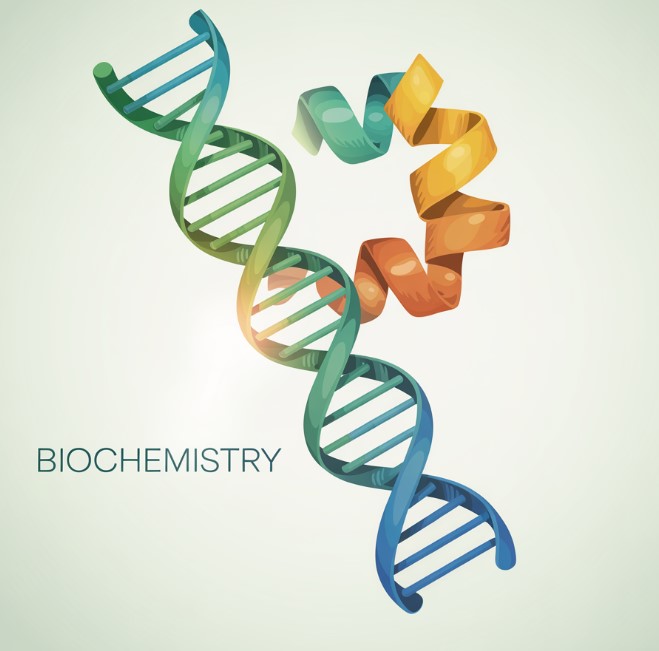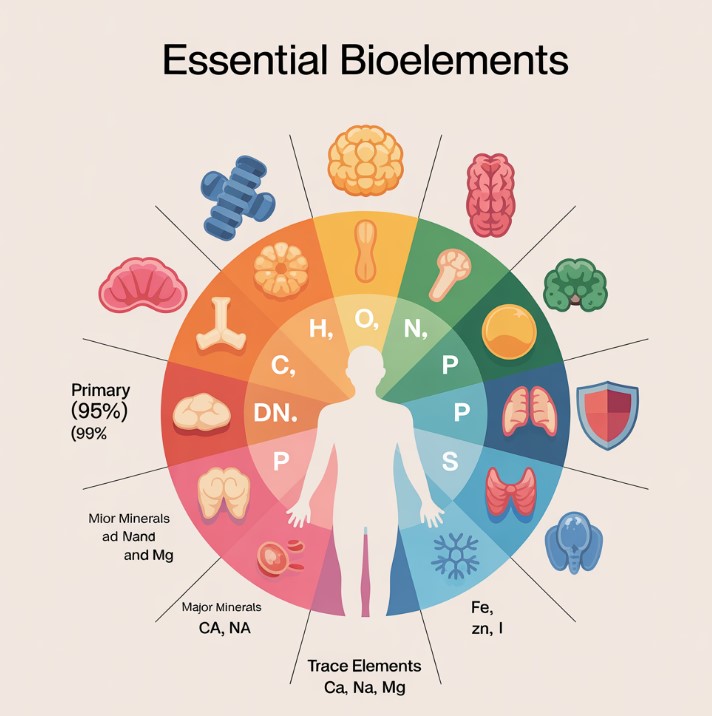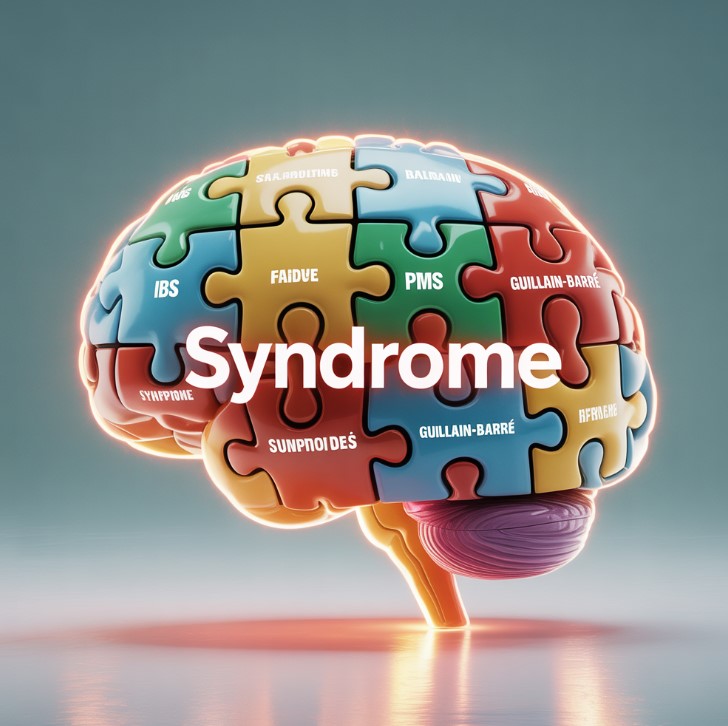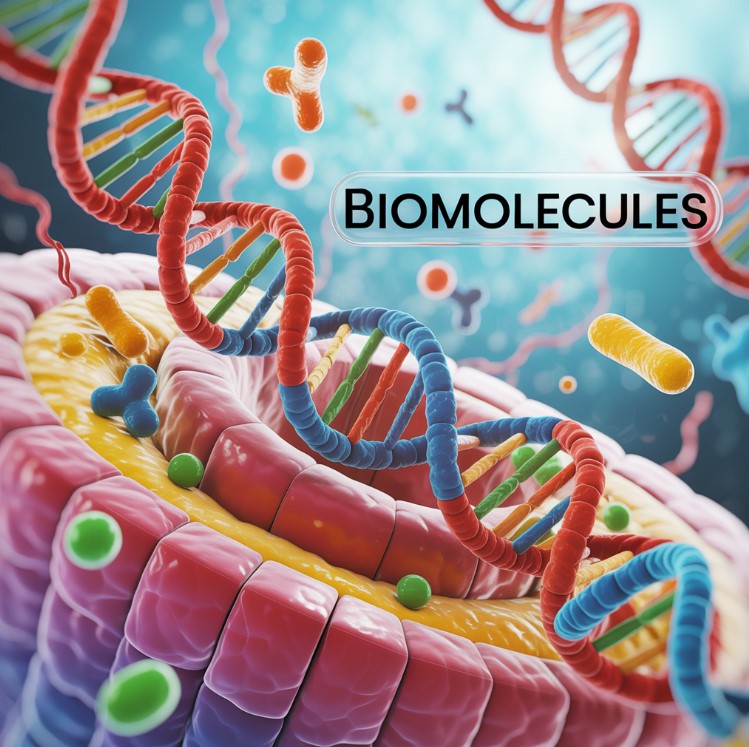Contents
Key Takeaways
- Biochemistry explores the molecular basis of life, examining the structure, function, and interactions of biological macromolecules like proteins and DNA that drive the chemical processes within living cells.
- By manipulating the molecular machinery of cells—from proteins to genes—biochemists work to both decipher the root causes of disease and to engineer novel therapeutics, diagnostics, and sustainable biotechnologies.
- Biochemistry provides the fundamental principles and molecular language for the modern life sciences. It has so thoroughly merged with molecular biology that they are now often considered a single, integrated discipline, while also forming the core of fields like pharmacology and chemical biology.
Biochemistry is the science that explains life at the molecular level, investigating how the chemical structures and reactions of biomolecules give rise to the complex processes within living organisms. To understand life is to understand its chemistry. We will explore the core principles of biochemistry and examine its critical role as the foundation for modern biology and medicine.
What Is Biochemistry?
Biochemistry investigates life at the molecular level, focusing on how the structure of molecules like proteins and DNA dictates their function within the cell. Specifically, this involves studying the structure, function, and interactions of the four major classes of biomolecules: proteins, nucleic acids (DNA and RNA), lipids, and carbohydrates, along with their intricate metabolic pathways.
What Types of Molecules Do Biochemists Study?
Living systems are built from four fundamental classes of biological macromolecules:
- carbohydrates
- lipids
- proteins
- nucleic acids
Three of these four classes—proteins, nucleic acids, and complex carbohydrates (polysaccharides)—are polymers: large macromolecules constructed from chains of repeating monomer subunits (amino acids, nucleotides, and monosaccharides, respectively). The structural backbone of all major biomolecules is a framework of carbon, whose unique ability to form four stable covalent bonds allows for the creation of the large, complex, and diverse molecules necessary for life.
What Is Biochemistry Used For?
Biochemistry illuminates the molecular mechanisms that underpin all cellular activities, from how a cell harnesses energy to how it expresses its genetic code. Biochemists characterize the properties of biomolecules to design novel drugs, create highly sensitive diagnostics, and engineer enzymes for sustainable industrial processes. For example, a biochemist might analyze the three-dimensional structure of a cancer-promoting enzyme to design a drug that precisely binds to and inhibits its active site, halting tumor growth.
Biochemists engineer and repurpose the molecular machinery of life—from enzymes to nucleic acids—to create novel solutions in medicine, industry, and sustainable technology. For example, a biochemist might engineer lipid nanoparticles (LNPs) to form a protective capsule around fragile mRNA, creating the delivery system essential for modern vaccines and emerging gene therapies.
In drug discovery, biochemists design synthetic “molecular mimics” that act as substitutes for natural molecules, allowing them to precisely block the active sites of enzymes or receptors involved in a disease. For example, biochemists are at the forefront of the gene-editing revolution, engineering protein-RNA complexes like CRISPR-Cas9 to precisely target and correct the genetic mutations responsible for inherited diseases.
By engineering the genetic code, biochemists can reprogram cells to function as molecular factories, compelling them to produce everything from sustainable biofuels to life-saving therapeutics. Gene therapy, which directly corrects a patient’s faulty genes, represents the ultimate application of this principle. The design and construction of novel biological machinery is the central goal of synthetic biology, a field built directly upon the principles of biochemistry.
What Does a Biochemist Do?
While rooted in chemistry, a modern biochemistry lab is a hybrid environment, seamlessly integrating chemical benches with the specialized tools of molecular biology—from incubators for cell culture to advanced instruments for protein purification and DNA analysis. Modern biochemistry is increasingly driven by computational specialists who work entirely in a “dry lab” environment. Using high-performance computing, they model molecular dynamics, predict protein structures, and analyze vast genomic datasets to guide experimental research.
To understand how biochemical pathways function within a true physiological context, many researchers conduct experiments directly in living cells or model organisms like yeast and mice. This in vivo research is essential for validating findings from traditional in vitro (test tube) experiments. Biochemistry is a fundamentally collaborative science. To tackle complex challenges like developing new drugs or understanding disease, biochemists work in integrated teams alongside cell biologists, geneticists, computational scientists, and bioengineers.
A primary career path for biochemists is in academia, where as faculty at universities and medical schools, their role integrates two core missions: leading an independent research group to make novel discoveries, and training the next generation of scientists through classroom teaching and direct mentorship in the lab.
The work environment for a biochemist varies significantly by sector. In industry (pharmaceuticals, biotech), roles are often structured with more regular business hours, competitive salaries, and robust corporate benefits. In academia, while intellectually rewarding, the work is famously demanding with irregular hours driven by experiments and grant deadlines, particularly for graduate students and postdoctoral researchers, with compensation becoming more competitive at the faculty level.
Biochemistry serves as the foundational science for molecular biology, genetics, and pharmacology, providing the essential chemical principles that explain their underlying mechanisms. In modern science, the boundaries between these disciplines have largely dissolved, creating a single, integrated field of molecular life science:
- Molecular Genetics
- Pharmacology
- Molecular Biology
- Chemical Biology




